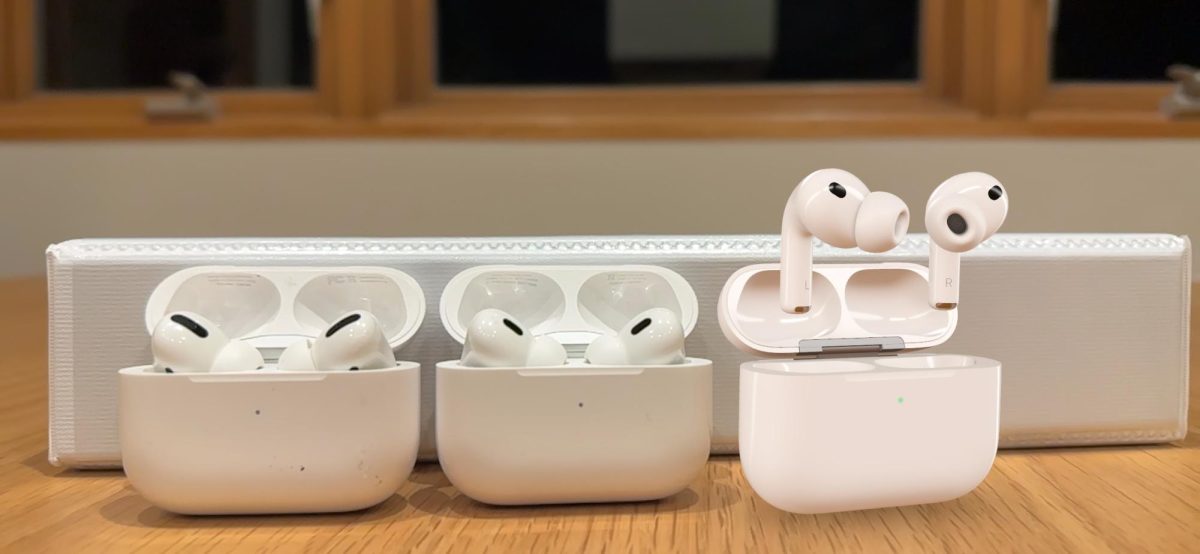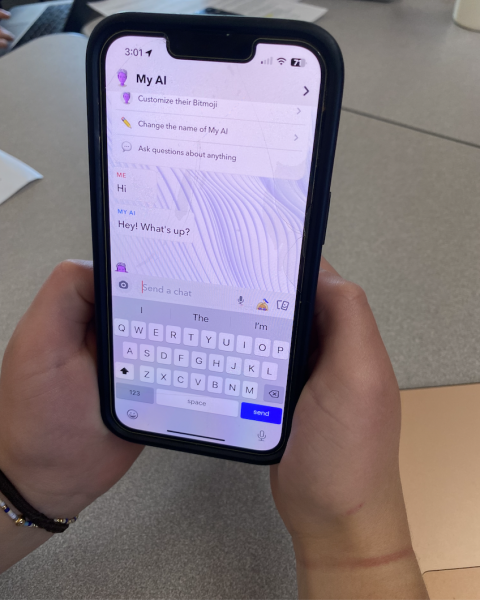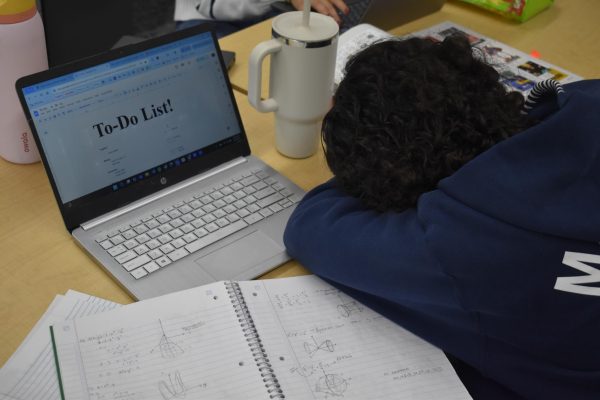The adverse effects of social media
AHS students procrastinating their school work in favor of social media.
In recent years, social media has begun to play a pivotal role in the lives of millions around the globe. With a variety of uses, it can appear as the ultimate tool for nearly everything from marketing, to activism, or simply meeting new people. However, the ability to connect with nearly anyone, at any time, at any place can serve as a blessing and a curse.
With the release of Facebook in 2004, an entirely new frontier of media and communication was instantly available to everyone with a phone or computer. Since then, countless new services have erupted, all promoting constant connection and the ability to stay on top of the latest trends. Today, the platforms, whether it be Snapchat, Instagram, or Facebook, dominate the lives of people everywhere, leading to a multitude of adverse effects.
Although the obvious result of constant access to social media is an addiction, often seen in many of today’s youth, the real problem lies beneath the surface and worsens over time. The addiction to whatever media platforms are present generally leads to a build-up of anxiety, delusion, and unhappiness. From mindlessly scrolling through an endless stream of information, to trying to build up an online presence in search of gaining approval in the form of ‘likes’, people often find themselves comparing themselves to others, creating a detrimental cycle of self-scrutiny.
Climary Sanchez, an IB Diploma senior at AHS, recently wrote her Extended Essay on the effects of social media and discovered some of the negative effects and recommends decreasing social media
“I found that the more time that teens spend on social media the lower their self-esteem is. Social media negatively impacts humans’ self-esteem through an indirect link. Women tend to be more affected than men. So, in turn, people who have low esteem are usually more prone to depression,” Sanchez said. “I have found that when people compare themselves to strangers on social media, especially on Instagram, their self-esteem takes a turn for the worse. I would recommend spending less time on social media and more time making in-person connections and studies have shown that people that do this have higher self-esteem and therefore are happier.”
Having talked to Sanchez about these effects, I decided to take a break myself from my social media, which included Instagram, Snapchat, and Facebook, and I was surprised by the results. During the first week of my break, I found myself reaching for my phone nearly every five minutes, only to find no notifications. At first, I felt a sense of urgency to re-connect, and to see what I had missed; however, as my addiction slowly faded, I found that I no longer felt the need to be available. I began to use my phone less and barely paid it any attention. After a three week trial period, I found that I did feel a lot less stressed and I no longer had a desire to check my phone whenever I found the time.
As a result of my experiment, I have found that while social media is useful for communication, it must be used in moderation, in order to help ease its effect on the mental health of its users. Although that may mean missing a message from a friend or the latest viral video, the longterm results help to preserve the mental health of all who utilize social media. Take a break.

Tatum is a senior at AHS and this is his third year with the Skier Scribbler, now an Editor-in-Chief. In his free time, he enjoys skiing, skateboarding,...






























